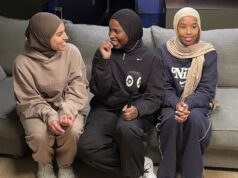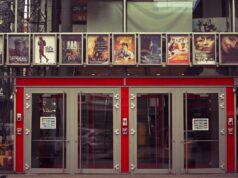 Having made her name as a music and entertainment journalist captivating people with her weekly column The Gist in New Nation newspaper, Akosua Annobil-Dodoo has now moved on and become the editor of overgroundonline.com – an online newspaper for British African-Caribbeans. Here she tells Flavour about her new venture.
Having made her name as a music and entertainment journalist captivating people with her weekly column The Gist in New Nation newspaper, Akosua Annobil-Dodoo has now moved on and become the editor of overgroundonline.com – an online newspaper for British African-Caribbeans. Here she tells Flavour about her new venture.
Why did you decide to study Journalism at university?
It runs in the family; my grandfather was a journalist in Ghana and Britain – so it was an easy choice.
How did you land your first job at the New Nation newspaper?
I’d been working as a sub-editor for a TV listings magazine, but was made redundant when the firm went bust in 2001. I called New Nation, who were looking for a sub-editor, and got the job. Two weeks later, one of their reporters left and the editor suggested I take the vacancy. I didn’t plan to be a journalist; that’s how it turned out.
As a former freelance journalist how difficult was it to get well-known publications like The Observer and Pride Magazine to publish your work and how did you make it happen?
When mainstream publications want to get an African Caribbean perspective on a news story they might contact New Nation or The Voice and ask one of their journalists to write an article, but this is quite rare. I wrote for Pride in 2006 and 2007 after then-editor Sherry Dixon asked me to contribute a column. I’d known Sherry for sometime and had always respected her work. I’ve made a point of getting to know as many editors and press officers as possible as having good contacts always gives you an advantage.
How did you build up your reputation within the media industry to begin with?
Hard work, networking and honesty. I tend to focus on the UK music and entertainment scene, which is a niche market so your name can spread quite quickly.
Who would you most like to interview most and why?
Naomi Campbell, Grace Jones and Oprah. They’re strong women who I respect and admire. All three have successfully worked in the media for a long time and I’m sure you’d learn a lot having a conversation with any one of them.
Why did you decide to leave journalism in the end?
I stopped working full-time at New Nation last year, but continued to give them a weekly entertainment column until last August. Overgroundonline.com launched the following month, so it was a natural progression for me.
You are the current editor of overgroundonline.com. What is the objective of this website?
African-Caribbeans are among the most technology-aware consumers in Britain. But publications such as New Nation, The Voice and Pride have been slow to react to the internet. Overgroundonline.com is an alternative newspaper focusing on entertainment and politics. The aim is to create a place where anyone interested in British, African or Caribbean culture can go online to read articles and watch videos about these cultures for free.
Why did you decide to provide a platform for underground talent with Overground Events?
The UK music scene is notoriously difficult to crack and there are very few people who know how to promote unsigned British, African and Caribbean entertainers. The events are just another simple way to help promote talented newcomers and unsung heroes.
How and why did you start up your communications company Fire Media UK?
It was a case of supply and demand. I started the company because at that time (2004) London’s underground music scene was thriving and there was a huge number of singles, albums and artists that needed specialist promotion. The industry has moved on since then, so we’ve had to diversify into events, theatre productions and celebrities. I stepped down as director of the company earlier this year, so I could spend more time working on the individual campaigns.
Who is the one person that inspires you in your field?
Orantes Moore, founder of overgroundonline.com.
Give me one issue (under each heading: Politics, Entertainment, Culture) that you are passionate about and deem important in society and briefly explain why.
Politics: Projects for young people are greatly under-funded in Britain. As a result we’re seeing a generation of youths growing up without any real sense of social responsibility.
Entertainment: Over the past five years, we’ve seen a number of underground entertainers successfully cross over into mainstream markets. But I’d like to see more young people progressing in positions that complement those entertainers; taking behind-the-scenes, management and production roles.
Culture: Whatever your culture, you should embrace it and allow people from other cultures to do the same.
When you’re not working, what do you like to do?
I enjoy cooking and try to jog a few times a week if possible. The only time I really stop working is when I’m out of the county.
Words by Rachelle Hull













